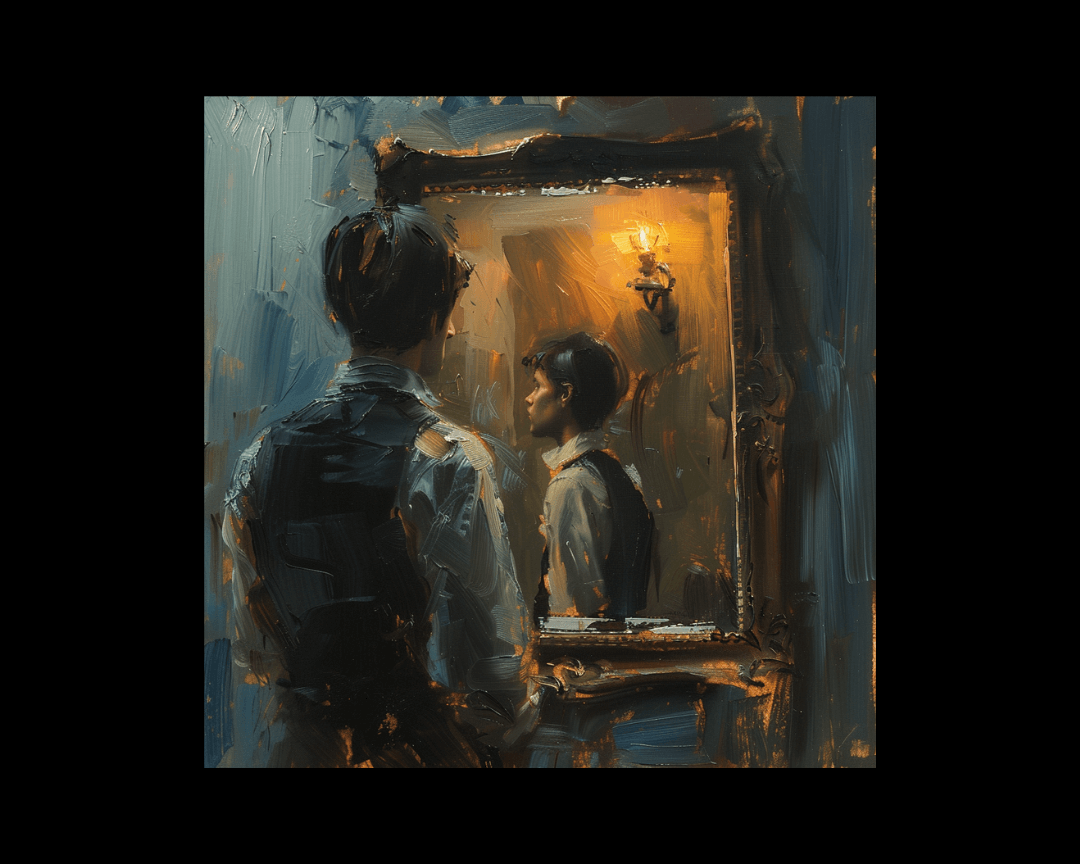The Labyrinth of the Soul: Characters And Internal Conflict
In the realm of fiction, conflict reigns supreme. It is the engine that drives the narrative, the spark that ignites the reader's imagination. While...

The craft of creating a protagonist—of birthing a character vivid and fully formed enough to arrest a reader's attention and haunt their imagination—is no easy feat.
Consider the great characters of literature, those figures who linger in the mind long after the final page: Gatsby with his "extraordinary gift for hope," his "romantic readiness," Kurtz with his "immense plans," his hollowed-out soul. These are not mere collections of quirks and traits, not tidy amalgams of eye color, height, and nervous tics. No, these are psychologies to be unraveled, abysses to be plumbed.
They are, in a word, complex.
We invite you, dear writer, to embark on this journey to the depths of your own psyche in search of the complex, contradictory, utterly human characters that will captivate your readers. It will not be easy. So take up your pen, and let us begin this voyage into the labyrinth of the human heart.
Complexity does not mean simply an abundance of detail, though detail is undoubtedly part of it. A laundry list of attributes - blue eyes, brown hair, a slight limp, a fondness for peach pie - does not a complex character make. No, complexity runs deeper than that. It is a matter of contradiction, inner conflict, and the warring impulses and desires that define the human condition.
A truly complex character is large; they contain multitudes. They surprise not only the reader but themselves. The brave man has moments of cowardice. Pangs of conscience visit the villain. The idealist compromises; the cynic reveals a hidden kernel of hope. These are not the actions of types but of fully realized individuals, as paradoxical and unpredictable as the flesh-and-blood people who populate our lives.
But how do we achieve this complexity on the page? It begins with a backstory. A protagonist does not spring fully formed from the author's brow; they are the product of all that has come before, of the thousand wounds and triumphs that have shaped their psyche. To write a complex character, one must first know them intimately and excavate their past's strata.
This does not mean subjecting the reader to a tedious recitation of childhood trauma and adolescent angst. The key is to hint at the depths, to gesture toward the submerged bulk of the iceberg. A fleeting memory triggered by a smell, a cryptic reference to a past event, a brief flash of irrational anger – these are the breadcrumbs that lead us into the labyrinth of a character's psyche.
Equally crucial is the inner life, the ceaseless churn of thought and feeling that constitutes consciousness. Crafting a complex protagonist grants the reader access to this mental landscape, letting them wander the corridors of another's mind. Stream of consciousness, internal monologue, and the close third person are the tools that allow us to inhabit the subjectivity of our characters and experience the world through their eyes.
But interiority alone is not enough. We must also see the character refracted through the perceptions of those around them and understand how they fit (or fail to fit) into the social fabric surrounding them. The hero to one may be the villain to another; the doting mother may look, to her neglected child, like a monster of selfishness. These shifting perspectives lend the character dimensionality, casting light and shadow on different facets of their being.
Perhaps most crucially, a complex character must change. They must be molded by the crucible of conflict, transformed by the slings and arrows of narrative. This change need not be drastic - there is a place for subtle, almost imperceptible shifts - but it must be real, emanating from the character's core.
The whimsical dreamer learns to face harsh realities, and the jaded cynic rediscovers a capacity for wonder. These arcs feel earned because we have seen the character struggle and witnessed the slow accumulation of experiences that lead to a fundamental alteration of the self.
None of this is easy. To write a complex protagonist is to embark on a quest that is at once psychological and spiritual, delving into the deepest recesses of human nature. It requires empathy, imagination, and no small measure of courage. We must be willing to confront the darkness in ourselves and others, to stare unflinchingly at the knots and scars of the psyche.
But the rewards of this endeavor are immense. A complex character is a gift to the reader, an invitation to explore the infinite mysteries of the self. They linger with us long after we close the book, whispering their secrets in our ears. They become a part of us, a sliver of alterity lodged in our own consciousness.
This is no small thing to create a character who endures, who weathers the entropy of the age – this is the task of the writer, the sacred calling. It is a labor of love and a profound responsibility, weaving the threads of human experience into a tapestry that might, for a moment, make sense of the chaos.
And so we write on, chasing the elusive ghost of complexity, knowing that the perfect character will always remain just out of reach. But in the striving, in the endless dance of creation and revision, we find a kind of solace, a stay against the swirling disorder of the world.
For in the end, it is not the destination that matters, but the journey - the exhilarating, maddening, heartbreaking journey into the labyrinth of the human heart.

In the realm of fiction, conflict reigns supreme. It is the engine that drives the narrative, the spark that ignites the reader's imagination. While...

In the realm of fiction, character reigns supreme. Readers experience the triumphs and tragedies, the loves and losses, the grand adventures and...

The significance of a well-crafted sidekick in storytelling cannot be overstated. These characters, whether the best friend, sassy co-worker, or...